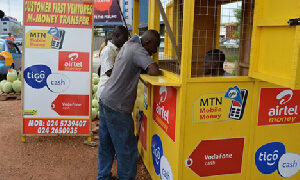The government has proposed to impose a 1.75 per cent levy on mobile money and other electronic transactions that exceed GH¢100 per a day.
He said the levy will be called ‘Electronic Transaction Levy or E-Levy’ and a portion of the proceeds from it will be used to support entrepreneurship, youth employment, cyber security, digital, and road infrastructure among others.
The introduction of the E-Levy is occasioned by the surge in mobile money transactions during the Covid-19 pandemic of 2020.
Reading the 2022 Budget in Parliament on Wednesday, Mr Ofori Atta stated “Mr. Speaker,“After considerable deliberations, the Government has decided to place a levy on all electronic transactions to widen the tax net and rope in the informal sector. This shall be known as the “Electronic Transaction Levy or E-Levy.”
“Electronic transactions covering mobile money payments, bank transfers, merchant payments and inward remittances will be charged at an applicable rate of 1.75%, which shall be borne by the sender except for inward remittances, which will be borne by the recipient.
“Mr. Speaker, to safeguard efforts being made to enhance financial inclusion and protect the vulnerable, all transactions that add up to GH¢100 or less per day (which is approximately GH¢3000 per month) will be exempt from this levy. A portion of the proceeds from the E-Levy will be used to support entrepreneurship, youth employment, cyber security, digital and road infrastructure among others.
“Mr. Speaker, this new policy comes into effect from 1st February 2022. The government will work with all industry partners to ensure that their systems and payment platforms are configured to implement the policy.”




















